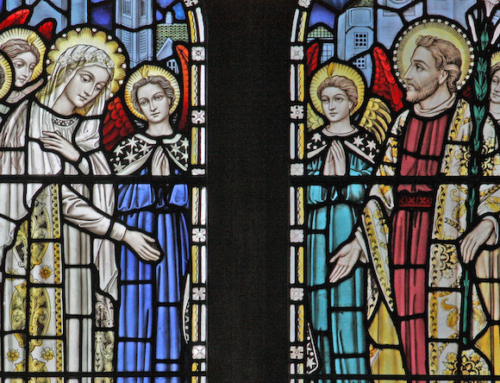Suppose you found that you could do with a snouted companion. Knowing you want a dog is fine, but you will find yourself unable to adopt a generic dog. You’ll have to settle on some particular breed; a Lab, Golden, German Shepherd, or Schnauzer might do.
That you want a dog, however, won’t bind you to choose any one breed. There may be reasons to choose one over the others—Labs are tractable, Golden Retrievers are friendly, German Shepherds will defend you, and Schnauzers are stoic—or reasons against—bored Schnauzers are destructive, German Shepherds can be vicious, Golden Retrievers get obnoxious, and Labs grow fat—but which reasons you come down on is up to you. You are free to choose, and the resolution is of your making. You are the sovereign lord over your choices.
Notice that your choice of which dog to adopt presupposes that you want a dog. If you didn’t want one at all—not even on account of a misty-eyed son or daughter—there would be no choice between this, that, or the other whelp. You have a reason to choose because there is something you want. You want a dog, and each of these breeds is a dog. But if you did not want to choose anything for any reason, what other reason could you give to explain your choosing? You are not free to choose the means to an end if you do not want the end.
While you are free to decide whether or not to get a dog, you are not free to decide whether or not you want to be happy, which is the one constant wish of every human being. Like with the generic dog, however, there is no generic happiness. Instead, there are apparent ways to happiness: wealth, pleasure, honor, friendship, family, learning, etc. That leaves you free to choose from among them in pursuing happiness, but it is also why no one in this life escapes fear or sorrow altogether.
Still, without the attraction of prospective happiness, there would be no choice and no freedom. You have a reason for choosing something because you want to be happy and what you’re choosing can help make you happy. But, in the end, if you did not want even to be happy, you would be hard pressed to locate a reason for any choice you made.
Menacing this happy arrangement is the chance that we err and choose what makes us unhappy. Furthermore, we can err in a way that is our fault. If you had a nut allergy and one evening came across the aroma of pesto, the pesto might momentarily appear good for you. The sensible thing is to remind yourself that eating pesto, which is infused with pine nuts, would ignite an anaphylactic reaction. While you could “choose” to ignore this thought and indulge your appetite, your “free” choice would then only be one that has atrophied.
Free choice, then, is always for a good; evil choices chip away at our freedom. If we had God’s knowledge and could at all times look at everything from every angle, we would never sin. Such as it is in this life, we must always choose attuned to the moral law—attuned to what is truly good for us—and open to God’s gift of grace.
By faith we know that God has destined us to share life with him in his perfect happiness. Nonetheless, until faith gives way to the beatific vision, we do not see this clearly and might treat God as one good thing among others. But God is not one good among others; he is the good and our perfect happiness. When we do see God clearly in heaven, we will be unable to choose what detracts from the love of God since we will then be perfectly happy. This will not deflate our freedom of choice. Rather, the haze that now hampers our freedom will be lifted. “For now, we see in a mirror, dimly, but then we will see face to face. Now I know only in part; then I will know fully, even as I have been fully known. And now faith, hope, and love abide, these three; and the greatest of these is love” (1 Cor 13:12-13).
✠
Photo by Nunne Bard, Bardlands kennel







